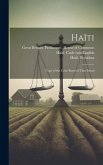Today in the United States, laws exist at all levels of government that exacerbate problems such as food waste, hunger, inhumane livestock conditions, and disappearing fish stocks. Baylen Linnekin argues that government rules often handcuff America's most sustainable farmers, producers, sellers, and consumers, while rewarding those whose practices are anything but sustainable. Biting the Hands that Feed Us introduces readers to the perverse consequences of many food rules, from crippling organic farms to subsidizing monocrops. Linnekin also explores what makes for a good law--often, he explains, these emphasize good outcomes over rigid processes. But he urges readers to reconsider efforts to regulate our way to a greener food system, calling instead for empowerment of those working to feed us--and themselves--sustainably.
Bitte wählen Sie Ihr Anliegen aus.
Rechnungen
Retourenschein anfordern
Bestellstatus
Storno








